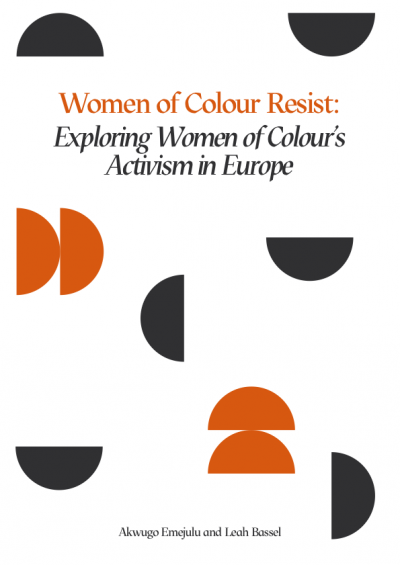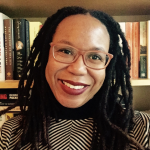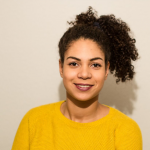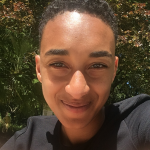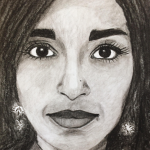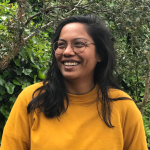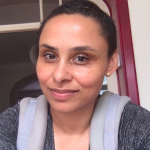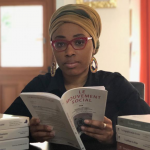Women of Colour Resist
About the Project
The purpose of this grant is to examine how women of colour activists in the United Kingdom, Germany, France, Belgium, Denmark and Spain strategise, organise and undertake solidarity work. In particular, this project aims to explore how women of colour activists struggle against the inter-related issues of:
The unprecedented reductions to social welfare spending and the privatisations of social welfare states across Europe
The political, policy and public opinion backlash against migrants in relation to increased surveillance, detentions and deportations
The rise of illiberal politics in terms of the electoral gains of far-right parties, the mainstreaming of extremist language in political discourse and the spike in racist and xenophobic hate crimes.
The Team
Professor of Sociology at the University of Warwick. Her research interests include the political sociology of race, class and gender and women of colour’s grassroots activism in Europe and the United States. Her work has appeared in the Journal of Ethnic and Racial Studies, Politics & Gender, Race & Class, Soundings and the European Journal of Women’s Studies. She is the author of several books including Minority Women and Austerity: Survival and Resistance in France and Britain (Policy Press, 2017) and Fugitive Feminism (Silver Press, forthcoming). She is co-editor of To Exist is to Resist: Black Feminism in Europe (Pluto Press, 2019).
Professor of Sociology at the University of Roehampton, UK, where her research interests include the political sociology of migration, intersectionality and citizenship. Her books include Refugee Women: Beyond Gender versus Culture (Routledge, 2012), The Politics of Listening: Possibilities and Challenges for Democratic Life (Palgrave, 2017), and Minority Women and Austerity: Survival and Resistance in France and Britain co-authored with Akwugo Emejulu (Policy Press 2017). She is currently co-Principal Investigator, with Akwugo Emejulu, of the Open Society-funded project Women of Colour Resist. Leah has also led projects funded by the Economic and Social Research Council and the British Academy. She is Associate Editor of the journal Citizenship Studies. Before pursuing an academic career, Leah was an emergency outreach worker in Paris, where she provided humanitarian assistance to asylum seekers and created a circus camp project for refugee youth.
Dominique Haensell is a freelance writer and journalist. As an academic, she focuses on literatures of the Black Diaspora and recently received a PhD at the FU Berlin (summa cum laude). She studied English/Comparative Literatures in Berlin and Critical Methodologies in London. As a journalist, she writes on politics and pop culture for, among others, Missy Magazine. She is currently working on her first novel.
An interdisciplinary writer, independent researcher, educator, curator, programmer, live art practitioner and prison abolitionist. They hold a BA Joint Honours in International Relations and Anthropology from the University of Sussex and an MA in Forensic Architecture from the Centre for Research Architecture, Goldsmiths, and is currently the editor of Talking Drugs, one of the few online platforms dedicated to providing unique news and analysis on drug policy, harm reduction and related issues around the world.
I believe the best weapon against the hostility shown by politicians and society at large towards immigrants, asylum seekers, people of African descent, Muslims, queers, indigenous peoples and people of colour in general, is to organise, unite and resist in order for us to challenge the cognitive imperialism, rooted in colonial structures of white supremacy and racist ideologies. We need to educate ourselves and our societies about alternatives and that which was before European colonialism. Socialising with people from these different intersections, I love the idea of a study that is shedding light on how such organising takes form and the value assigned to it by the people engaged. This is valuable knowledge in such an educational process.
Researcher, writer, and media maker based in Madrid. She is passionate about work that supports social justice and does this through working with various people, organizations, and communities to strategize, design, or provide support. Her academic background is in documentary filmmaking, anthropology, and urban design. Nadia uses her multidisciplinary background on work that centres migration, gender, and technology.
Research Affiliate at the Laboratoire d’Anthropologie des Mondes Contemporains at Université Libre de Bruxelles (ULB). She holds a PhD in Social and Political Sciences that she obtained from ULB in 2013. Her research focuses on African diasporas’ associational life and forms of collective action in Europe and in the US.
Researcher in history and political science, my research has been focused on highlighting how women of colour organize themselves and fight for their rights at the international level, as well as in national, colonial and postcolonial contexts, since 2007. I’ve studied Racism and sexism in France for my M.A thesis in political science, and I hold a doctorate in African history. My PhD thesis entitled: « Women, Public Sphere and Political Power in Postcolony: The Case of Cameroon (1945-2000’s) » aimed to examine the political participation of Cameroonian women in a postcolonial perspective, which includes the different ways in which women are mobilized in public space.
Resources
Prof. Akwugo Emejulu at LSE Events: Crisis Politics and the Challenge of Intersectional Solidarity


